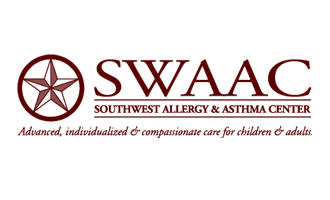In Dallas-Fort Worth, ragweed pollen is the hallmark of fall allergies. Beginning in late August and lasting through mid-November or longer, ragweed pollen spreads widely across North Texas, making this one of the toughest times of year for allergy sufferers.
Why Ragweed Lasts So Long in DFW
Our hot summers, mild autumns, and delayed first frost allow ragweed pollen to thrive for months. On windy days, pollen can spread across open fields and into suburban and urban neighborhoods alike. Even people who don’t normally notice seasonal allergies may feel their symptoms spike in September and October.
How Ragweed Affects Asthma in DFW
For many in the Metroplex, ragweed allergies aren’t just about sneezing. For people with asthma, ragweed can make symptoms significantly worse. Inflamed airways mean more coughing, chest tightness, and frequent use of rescue inhalers. That’s why allergists recommend that asthma patients check pollen counts as carefully as they check weather forecasts.
Symptoms to Watch Out For
- Sneezing and nasal congestion
- Watery or itchy eyes
- Sinus pressure and headaches
- Fatigue from poor sleep due to congestion
- Worsening asthma symptoms
Practical Relief Tips for North Texans
- Plan outdoor time wisely. Pollen counts are usually highest in the morning through the early afternoon ; try scheduling outdoor activities later in the day.
- Shower and change clothes after being outdoors. This prevents pollen from lingering on skin and bedding.
- Use saline sprays or rinses. They can clear allergens from nasal passages.
- Run HEPA filters in your home. Clean indoor air makes recovery easier overnight.
- Talk to your allergist early. Medications and immunotherapy work best when started before symptoms peak.
Why It Matters for Families
Children and adults alike in DFW often struggle through ragweed season, missing school, work, or social activities due to severe symptoms. The long ragweed season here means weeks of discomfort if left untreated.
At Southwest Allergy & Asthma Center, we provide tailored care for patients across the Metroplex. From testing and treatment to asthma management, our goal is to help you breathe easier—so fall can be a season to enjoy, not endure.





